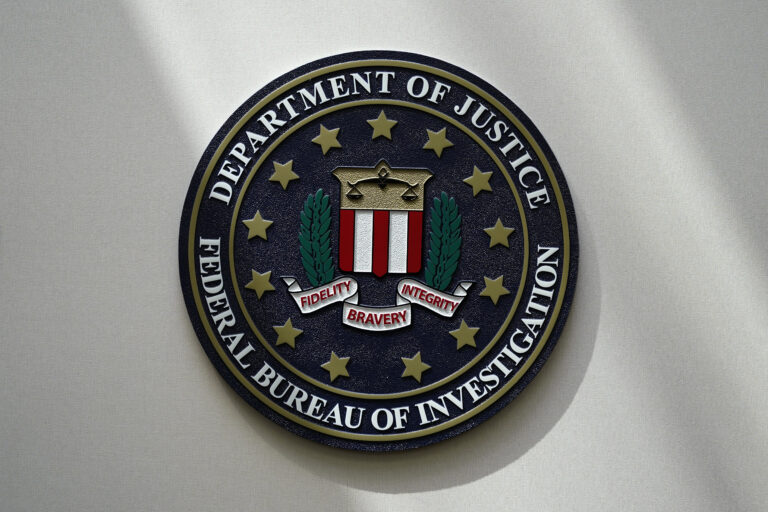 Whooping cough, also known as pertussis, has claimed the 10th victim in California, in what health officials are calling the worst outbreak in 60 years.
Whooping cough, also known as pertussis, has claimed the 10th victim in California, in what health officials are calling the worst outbreak in 60 years.
Since the beginning of the year, 5,978 confirmed, probable and suspected cases of the disease have been reported in California.
All of the deaths occurred in infants under the age of 3 months, says Michael Sicilia, a spokesman for the California Department of Public Health. Nine were younger than 8 weeks old, which means they were too young to have been vaccinated against this highly contagious bacterial disease.
“This is a preventable disease,” says Sicilia, because there is a vaccine for whooping cough to protect those coming in contact with infants, and thereby protect the infants.
However, some parents are choosing to not vaccinate their children. In other cases, previously vaccinated children and adults may have lost their immunity because the vaccine has worn off.
The vaccine “does not protect you for life,” explains Alison Patti, a spokesperson for the Centers for Disease Control and Prevention.
Sicilia says California Health Department epidemiologists estimate 50 percent of the children who have gotten sick were infected by their parents or caregivers.
According to the recommended vaccine schedule for infants, newborns don’t get their first pertussis vaccine until they are 2 months old, leaving them vulnerable to infection until then if the people surrounding them are infected.
“That’s why the real important message is — whether it’s a mom, dad, sibling, grandfather or grandmother that comes in contact with these really young babies — all the close contacts, including the health care professionals, need to vaccinated,” says Patti. It’s called the “cocooning strategy,” where the newborns are protected because the older people around them have been vaccinated and protected from pertussis, and therefore won’t pass it on to little babies.
Pertussis, or whooping cough, is a highly contagious disease caused by bacteria that can lead to severe upper respiratory infections. The bacteria is spread in tiny droplets when an infected person coughs or sneezes.
Initial symptoms are very similar to a cold, but a week or two later, a violent cough develops.
“If you’ve ever seen a child with pertussis, you won’t forget it” — that’s how the American Academy of Pediatrics explains what whooping cough is on its website. The academy says a child with the disease coughs so hard and so often “until the air is gone from his/her lungs and he/she is forced to inhale with the loud ‘whooping’ sound that gives the disease its nickname.”
The cough can last for weeks and children can cough so hard and rapidly,that blood vessels can burst and they have difficulty eating, drinking and breathing. According to the CDC, “about 1 in 5 infants with pertussis get pneumonia, and about 1 in 100 will have convulsions. In rare cases (1 in 100), pertussis can be deadly, especially in infants.”
Parents and doctors can often miss the initial symptoms of pertussis in the youngest patients because they often do not have the characteristic cough with a “whoop” says Patti.
According to the National Institutes of Health, “the whoop noise is rare in patients under 6 months and in adults.”
That’s why parents need to be alert to symptoms in themselves as well as their children, says Patti. If there’s a prolonged pause in breathing or they have trouble breathing, that’s an important sign and parents should seek medical attention immediately, she explains.
“It’s important to go to the doctor early on,” says Patti because, “antibiotics don’t help you later.”
Adults usually don’t have the “whoop” cough, so they may not think they have pertussis. Patti recommends if someone has a cough that doesn’t go away, they should get tested for pertussis.
Sicilia points out that the pertussis vaccine isn’t perfect and its protection wanes after about five years.
Health officials are urging everyone who hasn’t had a pertussis vaccine in the past five years or — doesn’t remember if they had one — to get the shot.
(Source: CNN)






7 Responses
I had whooping cough when I was 13. It lasted almost 2 months & it WAS NOT fun at all!
Another reminder of the importance of making sure everyone in your family is up to date on all their vaccinations! My husband and I both made sure to get the pertussis vaccine before my last baby was born, and we requested that my babysitter get it as well. My pediatrician informed me that unfortunately very few parents are following up on this important recommendation. (By the way, the pertussis vaccine is often combined with the tetanus vaccine, which is required every 10 years to maintain immunity. The “2 for 1” [or 3 for one if your dr. gives you the DTP] will also prevent you from having to worry the next time you get a “rusty nail” scare!)
Ask your babysitter if she is up to date on vaccines, and also whether she accepts children who do not get vaccinated due to their parents opting out.
Years ago I read an article written by a frum doctor, about an infant boy who contracted pertussis shortly after his bris and R”L passed away. On the bris video, they saw a neighborhood child whooping. The child had not been vaccinated, and he passed this on to the baby.
Vaccinations should be required by law.
My daughter had it as a few week old baby a couple of years ago and was in the hospital and was pretty scary. B”h she gout of it but lasted a few month.
Most people will get pertussis even if they are vaccinated.
The insert says Moderate to severe side effects include: Seizure, jerking or staring, non-stop crying for 3 or more hours, fever of 105 degrees Fahrenheit or higher. Serious allergic reactions include: hives, trouble breathing, hoarseness or wheezing, paleness, weakness, fast heartbeat, or dizziness. If a serious allergic reaction were to occur, it would happen within a few minutes to a few hours after the vaccine. If a high fever or seizure were to occur, it would usually happen within a week after the vaccine. Permanent brain damage, long-term seizures, coma, or lowered consciousness may occur as well. SIDS has occured in infants following administation of whole cell pertussis DPT and DPaT.
I personally know children who died after this vaccine so weigh the pros and cons carefully.
They dont tell you if all the children who died were vaccinated or not most of them are.
just wash your hands with soap often and keep up with your vaccinations and most people will be safe